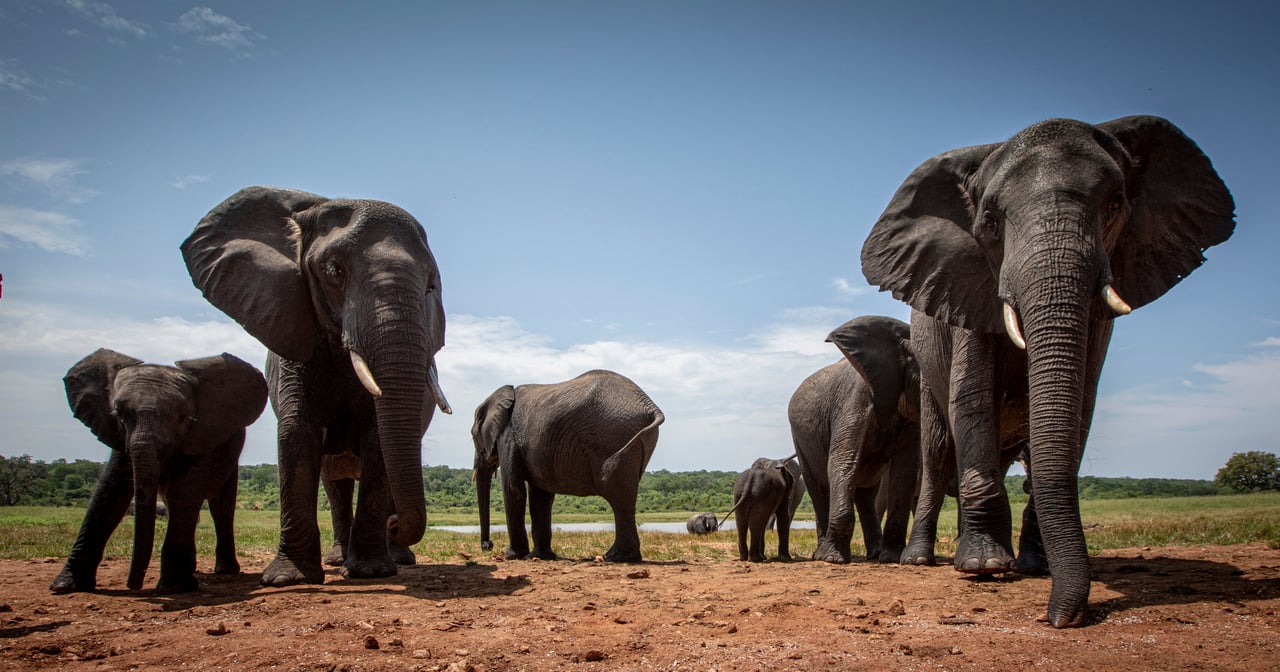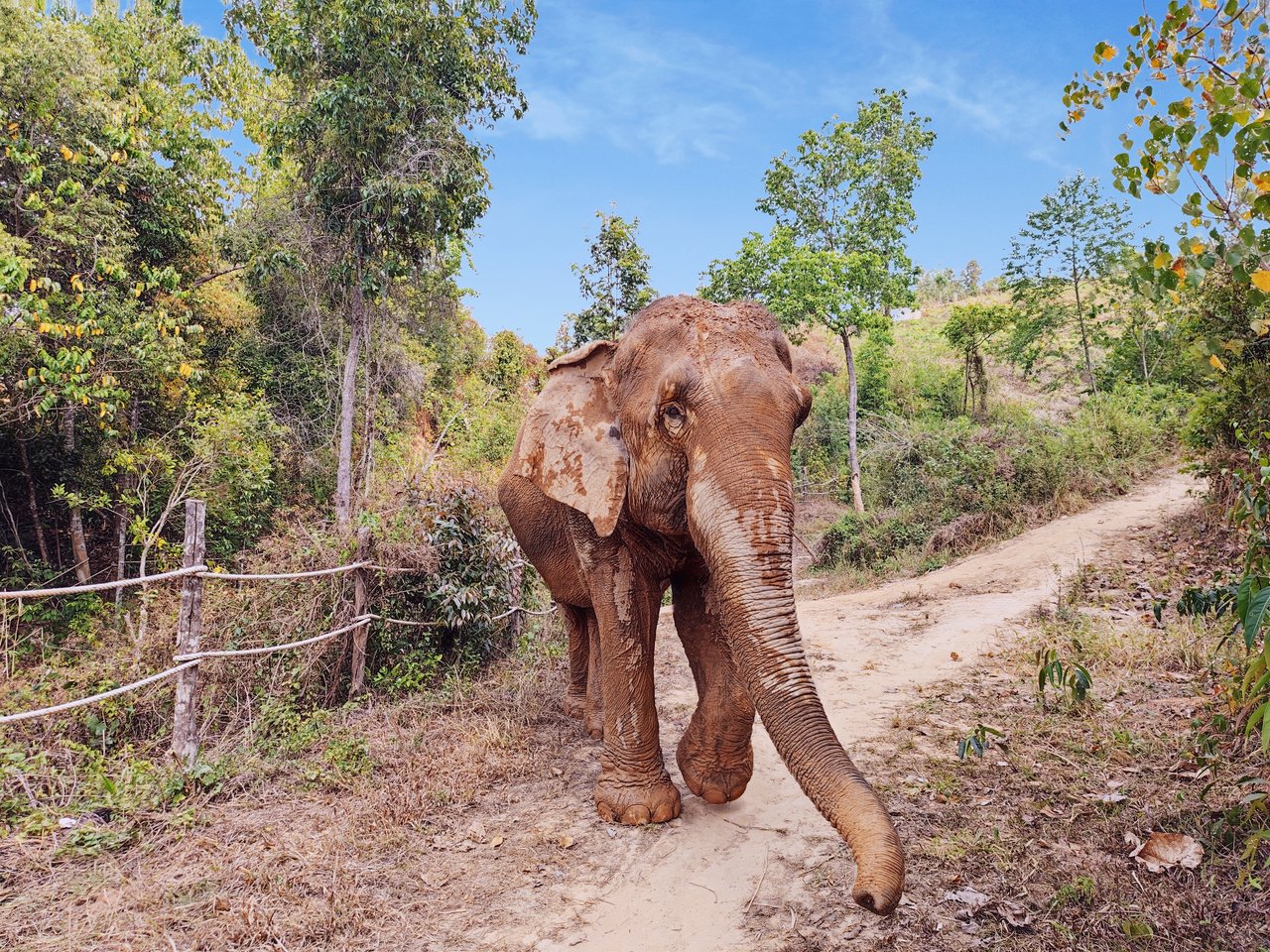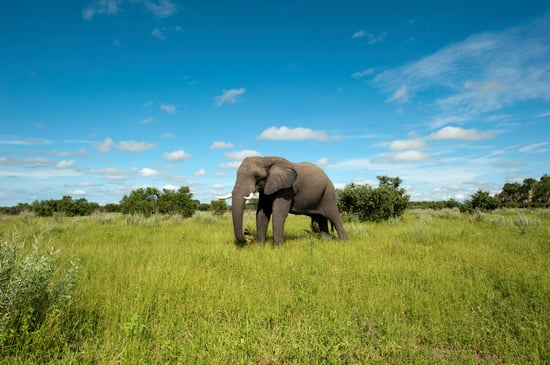
Elephant facts
Common name: Elephant
Scientific name: Loxodonta
Distribution: Africa, Asia
Here are some extraordinary facts about elephants!
Elephants are a keystone species – they have a significant impact on their environment and play a vital role in maintaining biodiversity.
Elephants are the largest living land-based mammal and can weigh between 3,000 to 5,000 kg with a body length of over 6 metres. They have distinctive long noses known as a trunk and large ears.
There are three commonly recognized species of elephants: the Asian elephant, the African savannah elephant and the African forest elephant. Within Asian elephants there three sub-species – Indian elephants, Ceylon elephants and Sumatran elephants.
There are approximately 38,000 – 52,000 Asian elephants in the wild with the Africa elephant population estimated to be at least 472,269 individuals, including 58% in Southern Africa.
Elephants are some of the most socially-developed mammals in the world and arrange themselves into complex social structures based on mother- calf units. They can live up to 70 years in the wild, however their lifespan in captivity is generally shorter.
Elephants are highly intelligent and have substantial cognitive ability. They can develop post-traumatic stress disorders, similar to those seen in humans, when held in captivity and faced with traumatic experiences such as separation from their mothers or cruel training.

Elephants are sentient beings – they think, feel, and have unique personalities
- Elephants display more alert body and emotional states when they are likely to encounter humans, such as when approaching unprotected areas like crop fields, compared with when they are approaching watering holes.
- Individual elephants respond differently to the loss of a herd member, with individuals showing significant behavioural and personality changes that may indicate their different experiences of grief.
- Adult elephants love to play. Adults tend to play with their environment, approaching, chasing and vocalizing at non-threatening species, and they will also engage in tactile play, such as tossing water or mud over themselves or others, rolling and water play.
- Calves and juvenile elephants like to engage in calm play with older elephants who are showing submissive behaviours. The young elephants may climb, lean or rub against them, and may even inter-twine their trunks with them. Young elephants also enjoy object play such as exploring objects with their trunk, mouth, tusks, and feet.
- Groups of children, adults and experts, who were asked to describe the emotional state of captive elephants, all used the terms frustrated, stressed and sad to describe elephants performing stereotypic trunk-twirling behaviours.
- Elephants are great at communicating, but often the meaning of visual signals and behaviour is context-dependent. Each individual in the herd has to understand the context of the message and be aware of the other elephant’s intentions, emotions, desires and needs, to be able to interpret their message. This is known as ‘theory of mind’ and it is a rare ability in the animal kingdom.
- Elephants find yawning contagious, and most individuals will yawn in response to seeing another elephant yawn, and even when they see a familiar human yawn. Contagious yawning has only been observed in a handful of species and is associated with empathy.
- Elephants form strong bonds with other elephants, and they prefer to rest together. Elephants will rest for longer if they have another elephant resting nearby, unless it’s a fidgety young elephant, as they tend to disturb everyone’s sleep!
- Elephants have unique personalities, and their personality traits are related to their problem-solving abilities. For example, elephants with the personality traits aggressive, defiant or protective, are better at solving simpler innovative tasks. Whereas, less active elephants are good at solving more complex tasks, as they take the time to explore and learn.
